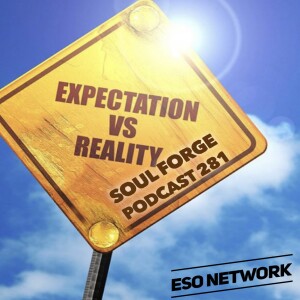
Expectations are what we think will happen, while reality is what actually transpires. While we hope these two will match up, they often don't. This disparity of expectations vs. reality can often lead to feelings of discontentment and unhappiness.
Expectations refer to the beliefs that you hold about the outcomes of events. While these expectations can play an important role in determining what happens and can contribute to goal-directed behavior, they can also lead to disappointment when reality does not match up to what you had hoped would happen.
People are surprisingly bad at predicting what will make them happy. This means that your expectations might cause you to think that achieving certain goals will bring joy and contentment, but because these predictions are often wrong, you might pursue the wrong goals.
Your expectations can get the better of you when you expect more than what is realistic in a given situation. You might expect your partner to live up to what you see in romance films. You may expect your job to be an idealized version you dreamed about as a child, or even your life to match what you see on Instagram.
Expectations can create significant stress when they don't match up with reality. Also, consider how social media can greatly contribute to this. You compare our own worst moments (those not deemed to be shareable online) to others' best moments, which very often are filtered to seem perfect.
When you find that what is happening is not what you expected, actively look for the positives in what you have. You may find that once you get over the disappointment, you have something you didn't initially realize you wanted. This helps you to be more appreciative of what you have.
This week's podcast promo: Drinking with Authors
More Episodes
 2022-08-11
2022-08-11
 72
72
 2022-07-28
2022-07-28
 67
67
 2022-07-14
2022-07-14
 78
78
 2022-06-30
2022-06-30
 71
71
 2022-06-23
2022-06-23
 78
78
 2022-06-16
2022-06-16
 72
72
 2022-06-09
2022-06-09
 77
77
 2022-06-02
2022-06-02
 98
98
 2022-05-26
2022-05-26
 72
72
 2022-05-19
2022-05-19
 92
92
 2022-05-12
2022-05-12
 106
106
 2022-05-05
2022-05-05
 121
121
 2022-04-28
2022-04-28
 103
103
 2022-04-21
2022-04-21
 103
103
 2022-04-14
2022-04-14
 107
107
 2022-04-07
2022-04-07
 101
101
 2022-03-24
2022-03-24
 99
99
 2022-03-10
2022-03-10
 100
100
 2022-03-03
2022-03-03
 96
96
 2022-02-24
2022-02-24
 90
90
Create your
podcast in
minutes
- Full-featured podcast site
- Unlimited storage and bandwidth
- Comprehensive podcast stats
- Distribute to Apple Podcasts, Spotify, and more
- Make money with your podcast
It is Free
- Privacy Policy
- Cookie Policy
- Terms of Use
- Consent Preferences
- Copyright © 2015-2024 Podbean.com






